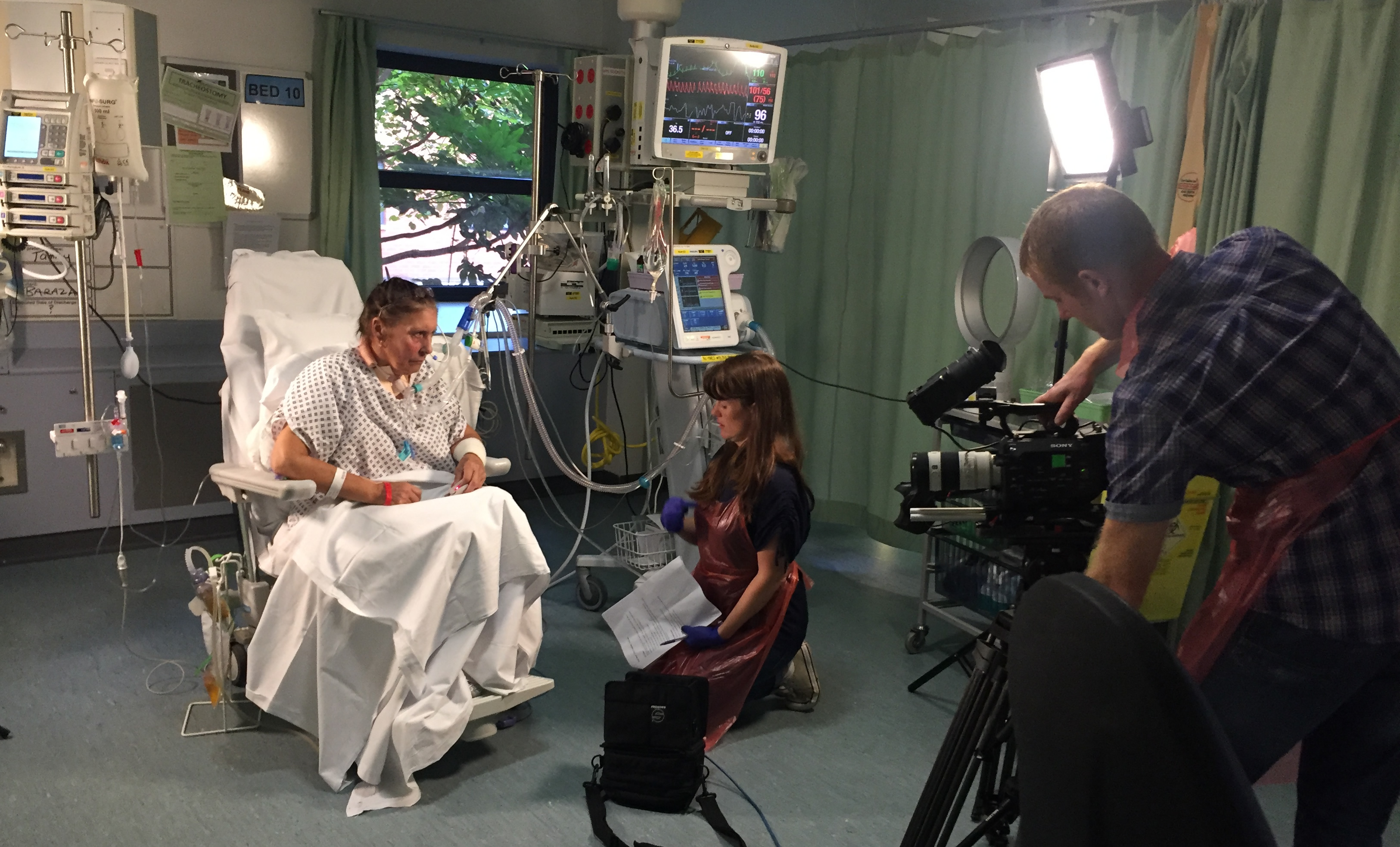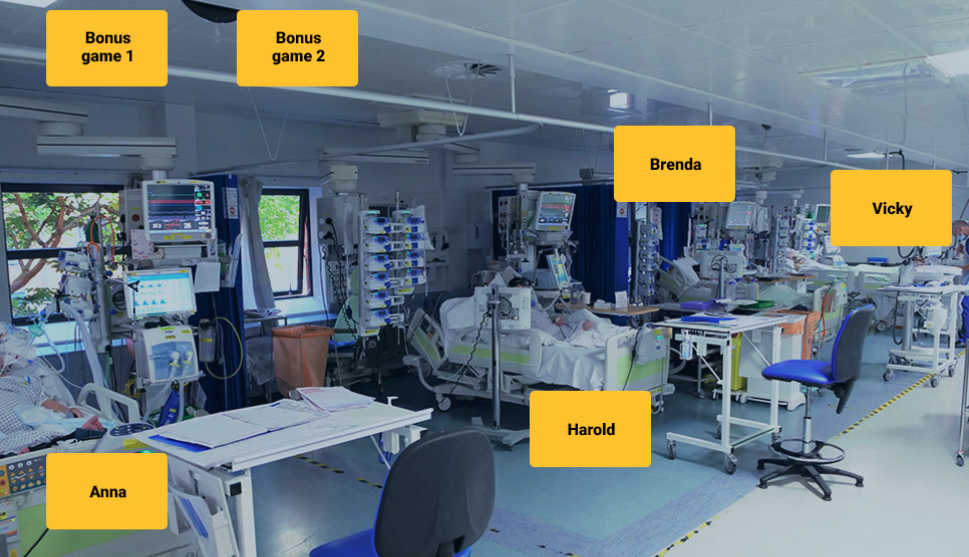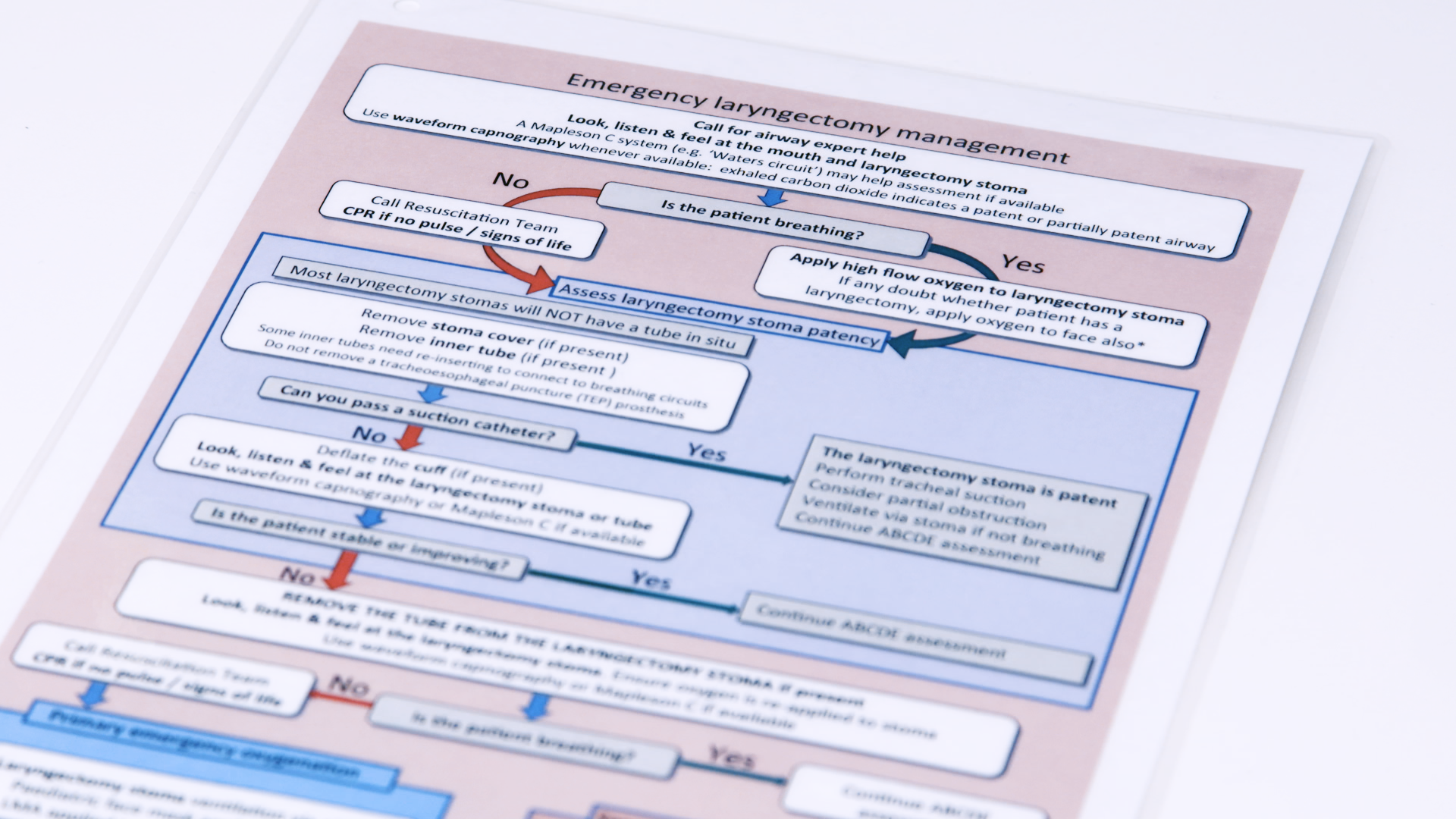Guidance and resources for medical, nursing and allied health staff and students.
For medical, nursing and allied health staff and students.
We have focussed our resources in three key areas:
- Emergency care including step by step run through of emergency management algorithms
- Basic care, done well aimed at preventing neck-breathing patients developing life-threatening emergencies by improving routine care
- Quality improvements which highlight and guide best practices for our patients. Our work identified vocalisation and swallowing as key areas to improve the patient experience
The resources are divided into those focussing on adult care and those with a paediatric focus, although there is some overlap between the two. The resources are supported by an extensive e-learning package, developed in partnership with the UK Department of Heath's e-Learning for Healthcare project and the Royal College of Anaesthetist's e-Learning in Anaesthesia Project.
Our resources focussed initially on improving emergency care, but developed to address basic tracheostomy care in order to try and prevent emergencies from occurring in the first place. Through our work with the Global Tracheostomy Collaborative, we have worked hard to understand what is important to patients and their families when it comes to tracheostomies and laryngectomies, and focussed our efforts on improving the quality and safety of care.
The NTSP manual Comprehensive Tracheostomy Care has collected together resources from individuals, centres of excellence and key organisations with a role in tracheostomy care. The manual puts together the individual pieces of the jigsaw that often existed in respect to specialised areas of tracheostomy and laryngectomy care. As much information as possible is provided in interactive formats, with links from the text of the manual direct to YouTube videos and the resources of this site.
Comprehensive Tracheostomy Care - the NTSP Manual is available in hardback now:
http://eu.wiley.com/WileyCDA/WileyTitle/productCd-1118792777.html
https://www.amazon.co.uk/Comprehensive-Tracheostomy-Care-National-Advanced/dp/1118792777
You can also download a PDF copy of an early edition of the manual here (large file).
Try the Tracheostomy Ward Round Game!
We have developed an interactive educational resource that you can 'play' yourself or as a team.
Click here to open up the game's micro-site!
Using NTSP resources
Please use our resources for teaching as much as you wish. Please cite the source, either as the National Tracheostomy Safety Project website www.tracheostomy.org, or the original papers for the algorithms (McGrath et al, Anaesthesia 2012;67(9):1025-41 or Doherty et al, Anaesthesia 2018, doi.org/10.1111/anae.14307). You only need to ask permission if resources from the scientific papers are being used in a journal article, textbook, or other commercial resource. You should apply to the journals directly (usually permisison is automatically granted via Rights Link).
The bedhead signs and algorithms are also available as PowerPoint to download and adapt for your local systems. See NTSP Algorithms & Bedheads.
Development and review of NTSP resources
The various resources have been peer reviewed by a number of different processes, including open peer review of draft resources posted on this website. The emergency guidelines, algorithms, bed-head signs and supporting manuscript have been endorsed by Difficult Airway Society, Intensive Care Society, the Royal College of Anaesthetists, ENT UK, British Association of Oral and Maxillofacial Surgeons, College of Emergency Medicine, Resuscitation Council UK, Royal College of Nursing, Royal College of Speech and Language Therapists, Association of Chartered Physiotherapists in Respiratory Care, British Laryngological Association, National Association of Laryngectomy Clubs and the National Patient Safety Agency. The NTSP manual has been reviewed by many of the groups above either formally or informally and also revised by a multidisciplinary NTSP editorial board. Finally, the e-Learning for Healthcare resources have been reviewed by e-Learning Anaesthesia at the Royal College of Anaesthetists.



